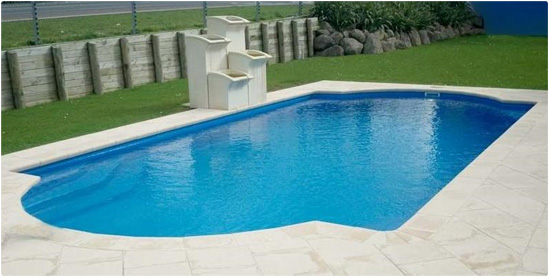It is important to keep our swimming pool safe for the family. In general, homeowners typically install a filtration system. They also regularly use chemicals to sanitize the pool; the common types are bromine and chlorine. These chemicals serve similar purposes and share certain characteristics, although we could find a number of differences between them. Depending on our situation and preferences, we may favour one chemical over the other. We sanitize our swimming pool with bromine and chlorine to destroy bacteria and other potential contaminants. Some of the harmful microorganisms could transfer infections and illness to our family.
Chlorine and bromine work in their own way. When we add them to pool water, chlorines will become hypochlorite ions and hypochlorous acid. These substances are strong enough to destroy or at least deactivate harmful contaminants by destroying the internal structure of the cells and breaking the cell walls down. When exposed to chlorine-related substance, bacteria become oxidized and they are less harmful. However, once chlorine deactivates specific number of microorganisms, their levels will drop and we need to add it routinely to our swimming pool.

On the other hand, bromine forms hypobromous acid when we add it to water. The acid is a potent sanitizer and oxidizer that could react well with microorganisms. However, unlike chlorine, bromine-based substances will remain active inside our pool and it will continue to kill dangerous microorganisms. Naturally, we need less bromine to keep our swimming pool sanitized and safe.
Bromine-based products could be pre-stabilized, so it would work well in warmer temperatures. This makes bromine more suitable for hot tubs and spas. However, bromine dissolves and reacts slower than chlorine, so it may be necessary to use an automatic chemical feeder to apply bromine to the swimming pool.
It should be noted that bromines is a less harsh chemical compared to chlorine, which could cause eye and skin irritation on some people. For this reason, people with more sensitive skin may consider using a bromine-based product, However, some bromine products could also contain some chlorine-based chemicals, so they are not really free alternatives for people who suffer from specific kinds of allergies. Bromine also has less strong odor than bromine; in some cases, chlorine could smell rather overwhelming and unpleasant.
Therefore, we should consider all the benefits and drawbacks of using proper chemical for our swimming pool. The end goal is to keep our swimming pool safe and healthy for the entire family. There are also unique situations that we need to consider, such as the temperature of our house and whether any of these chemicals are available in local stores. Once we have purchased these chemicals, we should make sure to read all the instructions carefully to ensure that we will sanitize our swimming pool in the most effective and safest way possible. When choosing the proper type of chemicals, price should be considered as the lowest consideration. What’s more important is to make sure that the swimming pool is thoroughly safe for our family.























